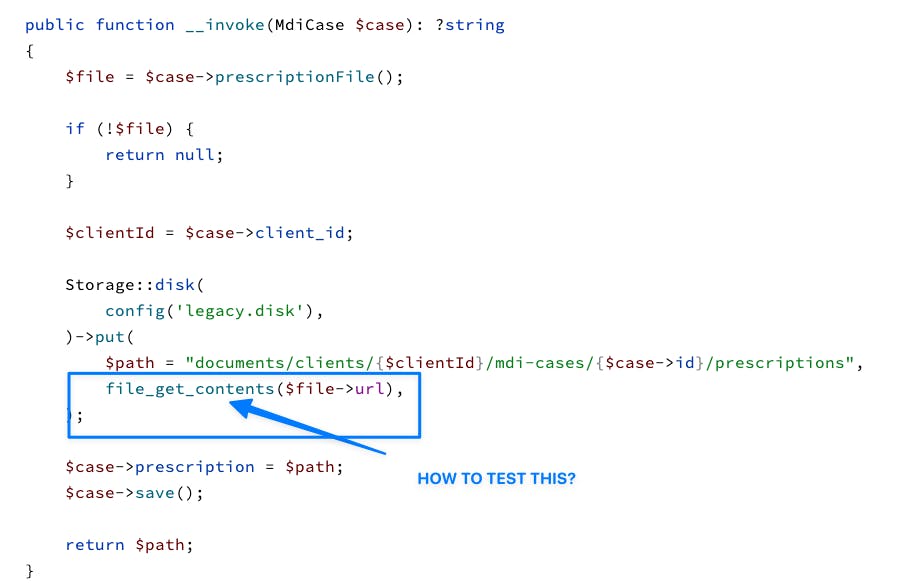When writing tests for Laravel applications with PHPUnit, you may encounter some challenges when testing code that makes use of PHP's file_get_contents function to fetch the contents of a file. The problem typically arises when you're trying to test a code that involves accessing a file from a remote server or a local file system, and the file is not available during the testing process.
This article explores one of such scenarios and discusses a solution that involves mocking.
Problem Scenario
Consider this piece of Laravel code that uses file_get_contents to read the content of a file from a URL:
$fileContent = file_get_contents('http://example.com/somefile.txt');In a unit test scenario, the above line of code would cause an error. Why? Because when running tests, the file at the given URL may not exist or be accessible, leading to a failure in the test where it's not expected.
Mocking as a Solution
One efficient way to handle this is through the use of "mocking." In unit testing, mocking is a process where the actual objects are replaced with fake objects that simulate the behavior of the real ones - in a way you can control.
By mocking, we can replace the actual file_get_contents behavior with a controlled response that suits our test case. But in PHP, file_get_contents is a global function, and these are harder to mock than class methods.
So how do we go around this? We can wrap the call to file_get_contents in a service class. This way, we can easily mock the service class in our tests.
Consider this service class:
namespace App\Domains\Shared\Actions;
class FileGetContentsAction
{
public function __invoke(string $url): string
{
return file_get_contents($url);
}
}Our earlier code that was using file_get_contents directly can now use our new service class:
$action = app(FileGetContentsAction::class);
$fileContent = $action('http://example.com/somefile.txt');
Now, in our tests, we can mock FileGetContentsAction and control the return value of its __invoke method:
public function testFileReading()
{
// Arrange
$mockAction = $this->createMock(FileGetContentsAction::class);
$mockAction->method('__invoke')->willReturn('Mocked file content');
$this->app->instance(FileGetContentsAction::class, $mockAction);
// Act
$action = app(FileGetContentsAction::class);
$fileContent = $action('http://example.com/somefile.txt');
// Assert
$this->assertEquals('Mocked file content', $fileContent);
}
Conclusion
Writing unit tests that involve file operations can be challenging, especially when using functions like file_get_contents. However, by wrapping such functions in a service class and then mocking that service class in our tests, we can gain control over these operations and make our tests more reliable and less dependent on the external environment. It might seem like a bit of extra work upfront, but the benefits for test reliability and control are worth it.
Discover Laravel Restify
We encountered this issue when developing one of our open source packages. Laravel Restify - is an open-source package from BinarCode. It offers a straightforward way to create JSON APIs with features like advanced searching, sorting, and pagination built-in. Contribute, learn, and improve your workflow with Laravel Restify on GitHub. Embrace the faster, streamlined API development it offers.

